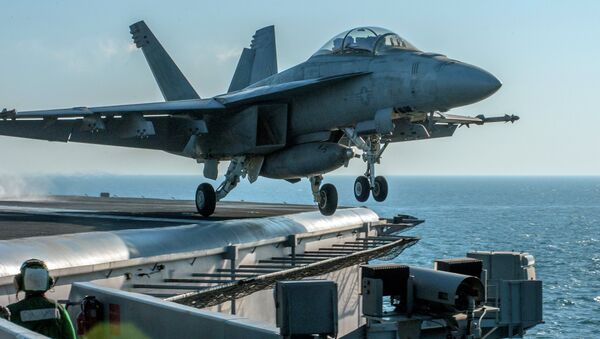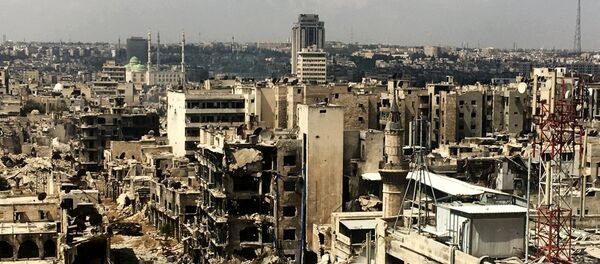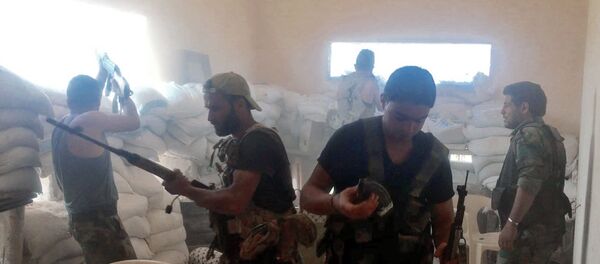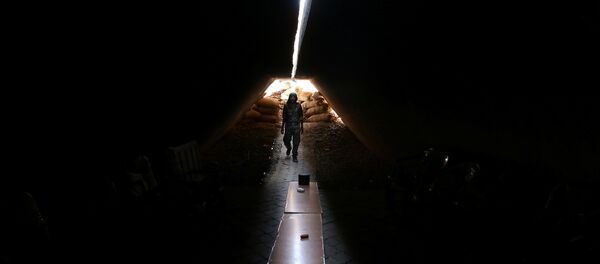On September 17, two F-16 fighter jets and two A-10 ground attack aircraft launched airstrikes against Damascus-led forces besieged by Daesh in the strategically important city of Deir ez-Zor, leaving at least 62 Syrian servicemen killed and more than 100 wounded.
On September 19, the Syrian Army's High Command announced the expiration of the ceasefire in the country, a week after the package of Russian-American agreements on Syria's truce entered force.
Meanwhile, Khrolenko wrote, the fighting is showing no sign of abating in Syria, where the opposition, backed by the US and some other countries, dreams of a future without the country's President Bashar Assad.
Someone is trying to disavow the Geneva accords clinched by Russian Foreign Minister Sergey and US State Secretary John Kerry in a bid to seize the initiative, according to him.
The gathering was attended by officials from Turkey, Britain, Germany, the United States, France, Qatar as well as representatives of the Syrian opposition.
"Naturally, Syria's future begins with the ouster of Bashar Assad and his entourage. Nothing new forays," Khrolenko sarcastically noted, referring to the meeting.
According to him, the intensity and nature of the fighting in Syria depend on many factors. Thus, he wrote, Turkey's entry into the Syrian war significantly changed the balance of forces in the Aleppo-Raqqa-Mosul triangle, which allegedly helps implement global projects.
"It seems that a new division of spheres of influence is on the cards, and a diplomatic solution [to the Syrian crisis] is becoming more and more unlikely," Khrolenko pointed out.
He referred to a recent working visit to Ankara by Russian Military Chief of Staff Valery Gerasimov, who is seen by many in the West as the leading theoretician of a hybrid war. The visit further prompted speculations on a geopolitical scenario in light of Syria's future, Khrolenko wrote.
"It's irrelevant to hope the American side [will adopt a] reasonable stance, so the deterioration of Russian-US ties in the future is inevitable. Turkey is not interested in the endless war on its borders, which is why Ankara may prove more realistic and useful. Turkey and Russia are really interested in the joint struggle against a common threat, "according to him.
In this regard, the September 17 air strike on Syrian forces may be described as a reconnaissance by fire against Russia, which has to develop a new military and political line on Syria, Khrolenko noted, adding that he does not rule out that more such "hard lessons" may occur in the future.
He also quoted the Turkish newspaper Milli Gazete as claiming that the death toll from the air strike allegedly included at least three Russian intelligence officers, who interrogated captured members of the Daesh terrorist group Daesh at a reconnaissance point.
It was revealed during the interrogations that Daesh terrorists were collaborating with Washington, which is why the reconnaissance point was bombed out.
On the other side, the destruction of a "humanitarian convoy" in Syria on September 20 and Washington's indignation regarding the matter just confirms "the high temperature of mutual distrust," he noted.
Khrolenko concluded the opinion piece by pointing out that "it is difficult to define a military and political leadership in the region; the United States is clearly not fit for this role."





